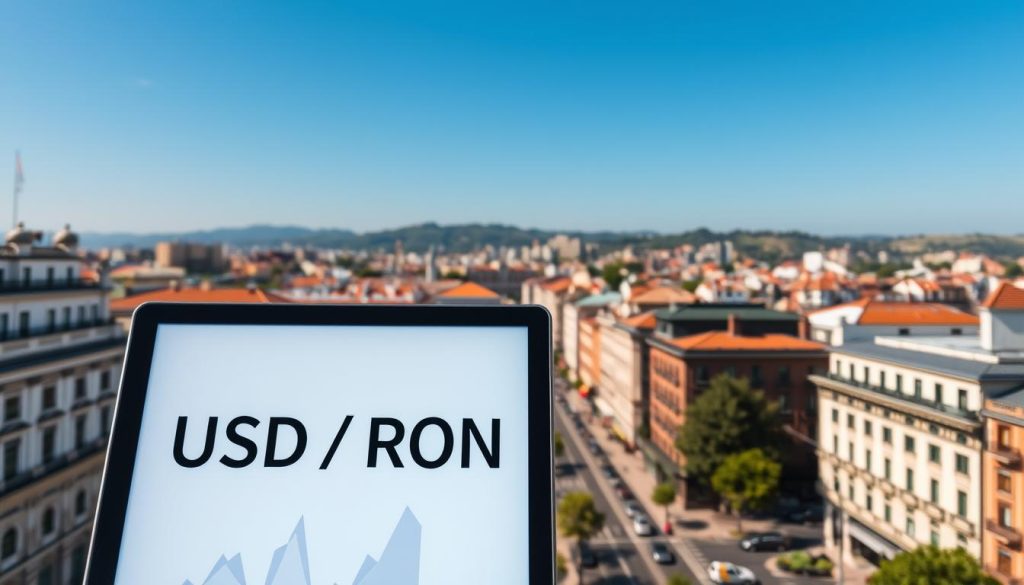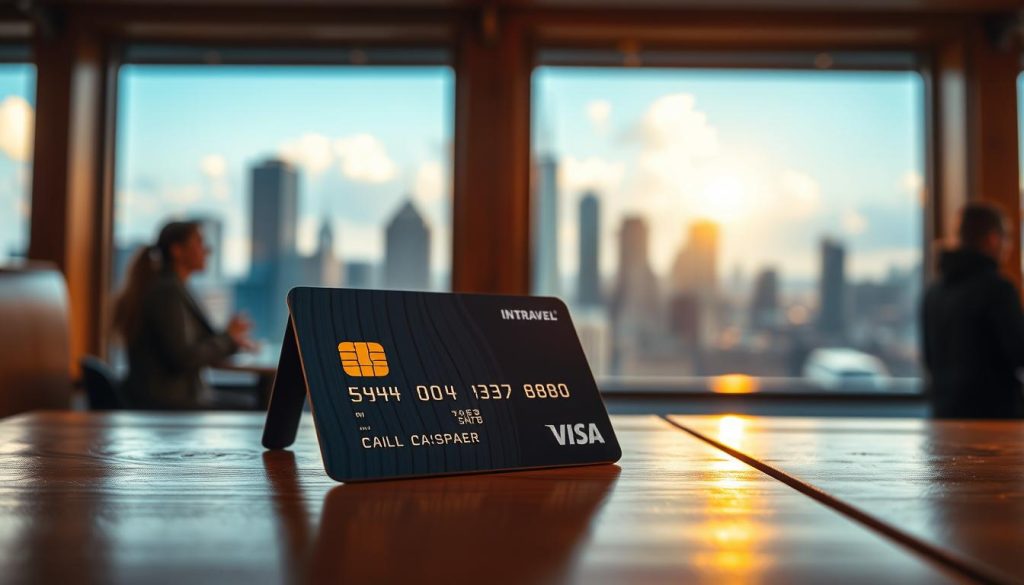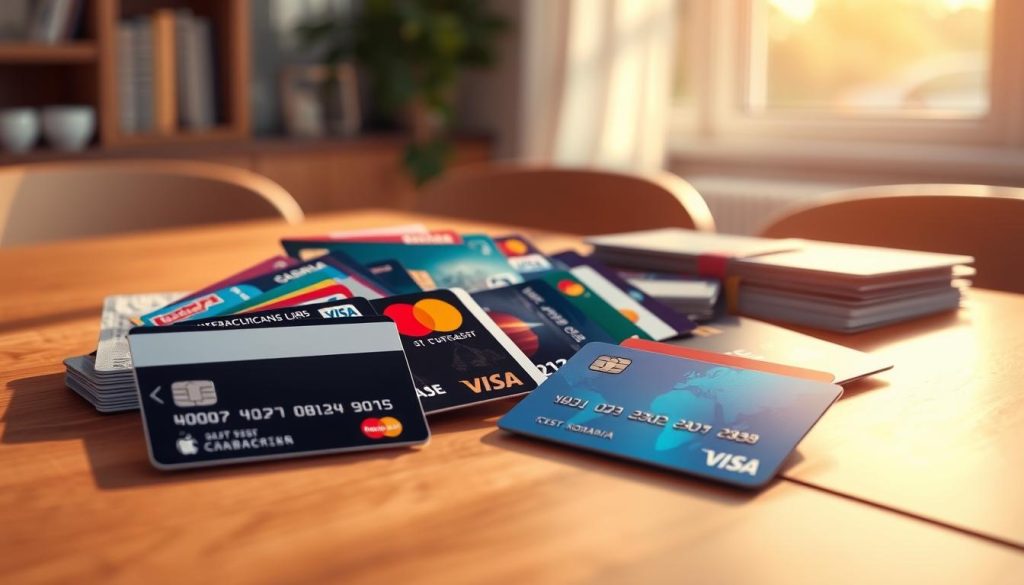Did you know that the mid-market exchange rate for USD to RON is currently 0.92345? While this rate is fair, hidden fees and markups can quickly add up, making it essential to plan ahead and avoid unnecessary costs. Managing your money wisely while traveling can significantly enhance your experience.
Using a travel debit card like Wise can help you save on foreign transaction fees and access better exchange rates. These cards allow you to hold and spend in multiple currencies, giving you flexibility and control over your finances. Pre-trip planning ensures you’re prepared for everything from ATMs to local transactions.
Understanding the official currency and card payment options can make your journey smoother. Whether you’re exploring bustling cities or quaint villages, knowing how to handle your money ensures you can focus on enjoying your travel experience. Let’s dive into the essentials of managing your finances effectively.
Understanding Romania’s Currency Landscape
Understanding the Romanian leu is key to managing your finances effectively. This official currency, abbreviated as RON, is widely used for all transactions. Knowing its denominations and symbols ensures you’re prepared for any payment scenario.
The Romanian Leu (RON) Explained
The Romanian leu is divided into 100 bani. It’s the backbone of the country’s financial system. Whether you’re buying a coffee or paying for a taxi, the leu is what you’ll use. Its code, RON, is essential for international transactions and exchange rates.
Banknotes, Coins, and Currency Symbols
Banknotes in Romania are made of polymer, making them durable and hard to counterfeit. They come in denominations of 1, 5, 10, 20, 50, 100, and 500 lei. Coins are available in 1, 5, 10, and 50 bani. Here’s a quick guide to recognize them:
- 1 leu: Ideal for small purchases like snacks.
- 10 lei: Perfect for a quick meal or short taxi ride.
- 100 lei: Useful for larger expenses like museum tickets.
Familiarizing yourself with these denominations helps you handle transactions confidently. Knowing the currency symbols and codes also ensures you’re not overcharged during exchanges.
How to Check Live Exchange Rates for USD/RON
Keeping track of live exchange rates can save you money while traveling. The mid-market rate is the benchmark used by banks and financial institutions. It’s the fairest rate available, but most currency exchanges add markups. Knowing how to monitor this rate ensures you get the best deal.

Understanding the Mid-Market Rate
The mid-market rate is the average between the buying and selling prices of currencies. It’s the rate banks use when trading with each other. For travelers, this rate is crucial because it reflects the true value of your money. Always compare the rates you’re offered to the mid-market rate to avoid overpaying.
Reliable Online Conversion Tools
Using reputable online tools is the easiest way to monitor live exchange rates. Websites like TransferGo and Smart Currency Exchange provide real-time updates. These platforms display the mid-market rate, helping you make informed decisions. Here’s how to use them effectively:
- Compare rates: Check multiple platforms to ensure accuracy.
- Track fluctuations: Currency values change frequently, so stay updated.
- Account for markups: Be aware of additional fees when exchanging cash.
By staying informed, you can avoid overspending and make the most of your travel budget.
Tips for Exchanging Money Before You Travel
Planning your finances before a trip can save you both time and money. Exchanging currency in advance ensures you get better rates and avoid unnecessary fees. This approach lets you focus on enjoying your journey without worrying about last-minute financial hassles.
Benefits of Pre-Trip Currency Exchange
Obtaining local currency before you arrive offers several advantages. Pre-trip exchanges typically provide more favorable rates compared to on-site options. You also avoid the stress of finding a reliable exchange service after landing.
Here’s why pre-trip exchange is a smart choice:
- Better rates: Banks and online services often offer closer to the mid-market rate.
- Lower fees: Avoid high transaction charges common at tourist spots.
- Convenience: Start your trip with cash in hand, ready for immediate use.
Avoiding Airport and Hotel Markups
Airport and hotel exchange bureaus are notorious for their high markups. These locations often charge inflated rates and additional fees, making them a costly option. For example, a 3% markup on a $1,000 exchange could cost you $30 more than necessary.
To avoid these pitfalls:
- Compare rates online: Use tools like TransferGo or Wise to check live rates.
- Plan ahead: Exchange currency at your local bank or a trusted online service.
- Limit cash withdrawals: Use ATMs sparingly to minimize withdrawal fees.
By taking these steps, you can manage your travel money responsibly and make the most of your budget. Start your journey prepared, and enjoy the peace of mind that comes with smart financial planning.
Using ATMs and Travel Debit Cards in Romania
Accessing cash while abroad doesn’t have to be complicated or costly. ATMs are widely available, making it easy to withdraw local currency whenever needed. Pairing this with a travel debit card can simplify your financial experience and save you money.

Choosing the Best Travel Debit Card
A travel debit card like Wise or Chase Sapphire Preferred offers several advantages. These cards often come with low foreign transaction fees and competitive exchange rates. You can manage your account through a mobile app, making it easy to track spending and set withdrawal limits.
Here’s what to look for in a travel debit card:
- Low fees: Avoid cards with high ATM or conversion charges.
- Mobile management: Apps let you monitor transactions in real-time.
- Wide acceptance: Ensure your card works with most ATMs and merchants.
Safety and Security Considerations
Using ATMs safely is crucial to protect your finances. Always cover your PIN when entering it and be aware of your surroundings. Skimming devices are rare but can be avoided by using ATMs in well-lit, secure locations like banks or airports.
Here are some additional safety tips:
- Check for tampering: Inspect the ATM for unusual attachments.
- Limit withdrawals: Avoid carrying large amounts of cash.
- Monitor your account: Report any suspicious activity immediately.
By following these practices, you can enjoy a hassle-free experience with your debit card and ATMs. Stay informed and prepared to make the most of your trip.
Paying in Romania: Cash vs. Card Payments
Navigating payment options while traveling can make your trip smoother and more enjoyable. In Romania, both cash and card payments are widely accepted, but knowing when to use each can save you time and money. This guide will help you decide the best approach for different situations.
When to Use Cash in Local Transactions
Cash is still king in many scenarios, especially in smaller towns or rural areas. Local markets, street vendors, and small cafes often prefer cash. It’s also essential for tipping, as many service workers rely on it.
Here are some situations where cash is your best bet:
- Small purchases: Items like snacks, souvenirs, or public transport tickets.
- Local markets: Many vendors don’t accept cards.
- Tipping: A 10-15% tip is customary in restaurants and for services.
Managing Foreign Transaction Fees
Using a credit card or debit card can be convenient, but foreign transaction fees can add up. These fees are typically 1-3% of the purchase amount. To minimize costs, choose cards with low or no foreign transaction fees.
Here’s how to manage these fees effectively:
- Check your card’s fee structure: Some cards, like the Wise Multi-Currency Card, offer low fees.
- Use cards for larger purchases: This reduces the number of transactions and fees.
- Monitor exchange rates: Pay in the local currency to avoid dynamic currency conversion fees.
| Payment Method | Best For | Tips |
|---|---|---|
| Cash | Small purchases, local markets, tipping | Carry small denominations for convenience. |
| Card | Larger purchases, hotels, restaurants | Use cards with no foreign transaction fees. |
Balancing cash and card usage ensures you’re prepared for any situation. By understanding the pros and cons of each, you can optimize your spending and enjoy a hassle-free trip.
Budgeting Your Trip: Prices and Payment Tips
Planning your trip budget is essential to make the most of your journey. Knowing the average costs for accommodation, meals, and transportation helps you avoid overspending. This guide breaks down typical expenses and offers practical tips to manage your money effectively.

Hotel, Dining, and Transportation Costs in RON
Accommodation prices vary depending on your preferences. Budget travelers can find hostels for as low as 50 lei per night, while mid-range hotels cost around 120 lei. Luxury options may go up to 200 lei or more. Planning ahead ensures you get the best deals.
Dining out is affordable, with street food costing about 7 lei and a meal at a mid-range restaurant around 60 lei. For those who prefer cooking, groceries like bread and water are inexpensive, averaging 3-8 lei per item.
Local transportation is also budget-friendly. A metro ticket costs around 3 lei, and daily travel expenses average 30 lei. Taxis and buses are slightly higher, at about 50 lei per day. Intercity flights range from 120 to 200 lei one way.
Strategies for Smart Spending
To make the most of your trip, compare prices before booking. Use online tools to monitor exchange rates and convert your budget accurately. Here’s a breakdown of daily spending for different travel styles:
| Category | Budget | Mid-Range | Luxury |
|---|---|---|---|
| Accommodation | 50 lei | 120 lei | 200 lei+ |
| Meals | 40 lei | 60 lei | 80 lei+ |
| Transportation | 30 lei | 50 lei | 50 lei+ |
Planning ahead with your bank and card budgets can help you manage costs effectively. Look for value deals on local services and always compare prices in RON using the mid-market rate. This ensures every dollar counts during your trip.
Essential Currency Conversion Strategies
Currency conversion can be tricky, but with the right strategies, you can save money and avoid unnecessary fees. Exchange rates fluctuate due to market conditions, and being aware of these factors can make a big difference in your spending.
Key Factors Influencing Conversion Rates
Global economic factors play a significant role in determining the value of your money during conversions. Demand, market sentiment, and geopolitical events can all impact exchange rates. For example, a sudden change in oil prices or political instability can cause rates to shift dramatically.
Here’s what you need to know:
- Demand: High demand for a currency increases its value.
- Market Sentiment: Positive economic news can boost a currency’s strength.
- Geopolitical Events: Elections or conflicts can lead to volatility in exchange rates.
Tips for Reducing Conversion Fees
Choosing the right time and method for exchanging currency can save you a lot. For instance, using a travel card like Wise offers low fees and real-time rate monitoring. Setting up alerts for favorable rates can also help you make timely decisions.
Here are some strategies to minimize fees:
- Compare Providers: Check rates from banks, online services, and ATMs.
- Monitor Rates: Use tools like TransferGo to track fluctuations.
- Avoid Hidden Fees: Always ask about additional charges before converting.
| Strategy | Benefit |
|---|---|
| Use a Travel Card | Low fees and real-time rate updates |
| Set Rate Alerts | Timely conversions at favorable rates |
| Compare Providers | Access to the best rates and lowest fees |
By understanding these factors and using the right tools, you can make smarter decisions and keep more of your money in your pocket. Stay informed and plan ahead to maximize your conversion efficiency.
Romania: Ultimate Travelers Guide to Currencies & Payments
Having multiple payment options ensures you’re ready for any situation. Whether you’re exploring bustling cities or rural areas, flexibility is key. Combining cash, cards, and a multi-currency card gives you the freedom to handle transactions smoothly.

A multi-currency card simplifies managing your travel money. It allows you to hold and spend in different currencies without worrying about exchange rates. This type of card is especially useful for frequent travelers who need quick access to funds.
Practical Tips for On-the-Go Conversions
Managing your account while traveling doesn’t have to be stressful. Mobile apps linked to your card let you monitor transactions in real-time. This helps you stay on top of your spending and avoid overspending.
Here are some practical tips for handling payments abroad:
- Use a multi-currency card: It offers low fees and competitive exchange rates.
- Plan withdrawals: Limit ATM use to avoid extra fees and always choose local currency.
- Switch between cash and cards: Use cash for small purchases and cards for larger expenses.
Monitoring your payment transactions ensures you stay within budget. Set up alerts for withdrawals and track your spending through your account app. This way, you can enjoy your trip without financial worries.
Local Payment Methods and Merchant Acceptance
When exploring new destinations, understanding local payment methods can make your experience smoother. In many cities and towns, merchants accept a variety of payment options, from cash to travel debit cards. However, knowing how to navigate these options can save you from unnecessary fees and hassles.
How Dynamic Currency Conversion Works
Dynamic currency conversion (DCC) is a service offered by some merchants and ATMs. It allows you to pay in your home currency instead of the local one. While this might seem convenient, it often comes with hidden fees and unfavorable exchange rates.
Here’s why DCC can be costly:
- Higher Rates: The exchange rate used in DCC is usually less favorable than the mid-market rate.
- Additional Fees: Merchants or banks may charge extra for the conversion service.
- Lack of Transparency: The total cost is often unclear until the transaction is complete.
To avoid these pitfalls, always choose to pay in the local currency. This ensures you get the best rate and avoid unnecessary charges.
Practical Tips for Smart Payments
Using a travel debit card can simplify your transactions and save you money. These cards often offer low fees and competitive exchange rates. Here’s how to use them effectively:
- Verify Local Currency: Always confirm that you’re paying in RON, the local currency, to avoid DCC fees.
- Ask for Prices in RON: Some merchants may default to your home currency. Politely request prices in the local currency.
- Monitor Transactions: Use your card’s mobile app to track spending and ensure no unexpected fees are added.
By following these steps, you can make the most of your card romania experience and avoid unnecessary costs. Stay informed and prepared to enjoy your destination without financial worries.
Industry Insights and Best Practices for Currency Exchange
Expert insights can transform your approach to managing money abroad. Industry professionals emphasize the importance of research and planning to avoid unnecessary fees and maximize your spending power. Here’s how you can make the most of your international financial transactions.
Expert Advice for International Travelers
Traveling internationally requires a smart approach to currency exchange. Experts recommend notifying your bank before your trip to prevent card issues. This simple step ensures seamless access to funds while abroad.
Here are some actionable tips from industry veterans:
- Compare Exchange Rates: Always check multiple providers to find the best rates. Online tools like Wise and TransferGo can help you monitor live rates.
- Use Multi-Currency Cards: These cards allow you to hold and spend in different currencies, reducing conversion fees.
- Plan Withdrawals: Limit ATM use to avoid extra fees and always choose the local currency option.
Leveraging Bank Resources
Your bank can be a valuable resource for managing your spending abroad. Many banks offer travel-friendly accounts with low foreign transaction fees. Setting up alerts for withdrawals and tracking your expenses through mobile apps can help you stay within budget.
Here’s a quick guide to using bank resources effectively:
- Notify Your Bank: Inform your bank of your travel dates and destinations to avoid card blocks.
- Explore Travel Accounts: Some banks offer accounts designed for international travelers, with perks like fee-free withdrawals.
- Monitor Transactions: Use your bank’s app to track spending and detect any unauthorized charges.
Strategic Planning to Avoid Unforeseen Costs
Planning ahead is the key to a stress-free financial experience. Researching exchange rates, understanding local payment methods, and setting a budget can save you money and time. Here’s a curated list of dos and don’ts to ensure every transaction is cost-effective:
- Do: Exchange currency before your trip to get better rates.
- Don’t: Use airport or hotel exchange bureaus, as they often charge high fees.
- Do: Use a travel debit card for low fees and real-time rate updates.
- Don’t: Rely solely on cash, as it can be inconvenient and risky.
By following these expert tips, you can make smarter financial decisions and enjoy your trip without unnecessary expenses. For further guidance, explore additional resources and tools tailored to international travelers.
Conclusion
Handling your money wisely while abroad can make your journey smoother and more enjoyable. By understanding the local currency and using the right payment methods, you can avoid unnecessary fees and focus on exploring. A multi-currency card is a great way to manage your funds, offering low fees and real-time rate updates.
Always keep an eye on your account balance and monitor transactions to stay within budget. Plan ahead for withdrawals and choose reliable ATMs to minimize costs. Whether you’re dining at a local restaurant or shopping in a bustling market, having the right tools ensures a seamless experience.
With these tips, you’re ready to make the most of your trip. Stay informed, plan ahead, and enjoy every moment without financial worries.
The above is subject to change.
Check back often to TRAVEL.COM for the latest travel tips and deals.
Here are some Tours & Sightseeing suggestions that might pique your interests!





